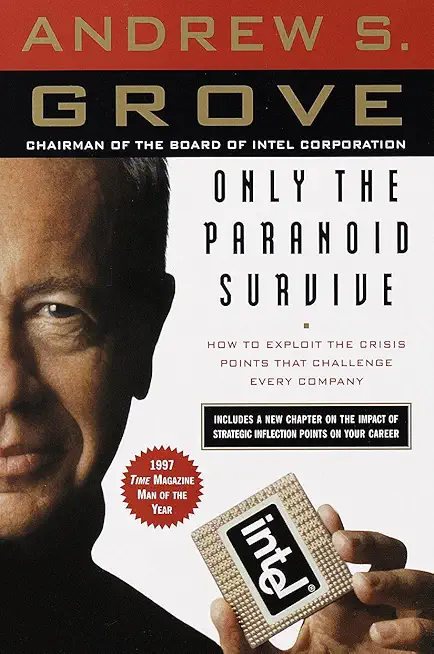
The Advantage – Patrick Lencioni

The Power of Full Engagement – Jim Loehr & Tony Schwartz
Title: Only the Paranoid Survive
Author: Andrew S. Grove
Main Idea
Only the Paranoid Survive explores how businesses can successfully navigate major strategic changes by staying alert to industry shifts and embracing constant vigilance. Andrew Grove emphasizes the importance of recognizing “strategic inflection points” to adapt and thrive in a changing environment.
Key Points
-
Strategic Inflection Points (SIPs):
- SIPs are critical moments when the fundamentals of a business or industry undergo a significant change, requiring companies to rethink their strategies.
- These points can be triggered by technological innovations, competitive shifts, or market dynamics, and missing them can threaten a company’s survival.
-
Paranoia as a Survival Tool:
- Grove argues that maintaining a sense of paranoia—being continuously aware of potential threats and vulnerabilities—is essential for leadership.
- Leaders must stay alert to subtle signs of change and be willing to challenge the status quo.
-
Recognizing the Signs:
- Successful leaders detect early warning signs of SIPs through customer feedback, competitor moves, technological trends, and internal performance metrics.
- Ignoring or dismissing these signs often leads to missed opportunities or business decline.
-
Adapting to Change:
- When facing an SIP, organizations must be ready to transform their business models, culture, or products to remain competitive.
- This may involve disruptive decisions such as reallocating resources, restructuring teams, or entering new markets.
-
Overcoming Resistance:
- Change often meets internal resistance from employees habituated to existing processes.
- Leaders need to communicate the urgency clearly and foster a culture that embraces change rather than fearing it.
-
Leadership’s Role:
- The CEO or leader must champion change and take personal responsibility for guiding the organization through uncertainty.
- Strong leadership helps navigate the difficult transition periods that SIPs bring.
-
Personal Examples from Grove:
- Grove shares his experiences at Intel, detailing how the company once faced a major SIP when shifting from memory chips to microprocessors.
- This case study shows the practical application of theory and the tough decisions required to survive.
Review
- The book serves as a guide for leaders to detect and respond to critical inflection points that can make or break their organizations. It stresses that complacency is dangerous and that paranoia, in this context, fuels vigilance and adaptability.
- Grove’s candid insights and real-world examples make this book essential reading for executives and managers concerned about staying competitive in rapidly evolving industries.
Recommendation
- This book is ideal for business leaders, managers facing strategic challenges, and entrepreneurs aiming to future-proof their ventures by mastering the art of adaptive leadership.

